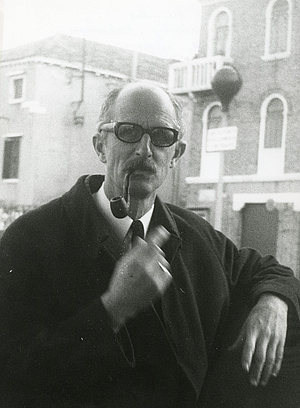In the OeNB research project "Ferdinand Schuster (1920-1972): The Architectural Oeuvre", architectural documents, illustrations, written work and plans are collected and indexed to document Ferdinand Schuster’s contribution to Austrian post-war architecture as an architect, theorist and university instructor. From the 1950s on, Schuster was one of the leading thinkers of modern architecture in Styria, whether in sacred architecture (as with the ecclesiastical multipurpose room in the pastoral care center St. Paul-Eisteichsiedlung in Graz), industrial building (with the thermal power plants of Graz and Neudorf-Werndorf), or in housing, education and urban planning (Schuster's influential role in the urban development of Kapfenberg). In his theoretical reflections on architecture Schuster considered the cultural, social, and political dimensions of building. Beginning in 1964 he was Chair of Architecture and Design at the Technical College of Graz, and as such influenced an entire generation of Graz architecture students.
The aim of the documentation of Ferdinand Schuster's work is a monograph that will be published in 2020, on the occasion of his hundredth birthday. Other important components of the research project are interviews with Schuster's companions, the already completed photographic documentation of his existing buildings, and courses in which architecture students engage with the architecture and writings of Schuster. In preparation for the monograph, research laboratories have been organized monthly since October 2018, in which researchers from historic preservation, architectural theory and architectural practice can exchange their findings on Ferdinand Schuster: Industrial Construction (18/10/2018), Sacred Architecture (16/11/2018), Housing (11/01/2019), Architecture + Society (08/02/2019), and Education + Teaching (15/03/2019).
Projectduration:
2018 – 2020
Financing:
Jubiläumsfonds der Österreichischen Nationalbank (OeNB)
Projectteam:
Projectleader: Daniel Gethmann
Projectstaff: Ajda Goznik, Clemens Haßlinger, Felix Obermair
Project Homepage

